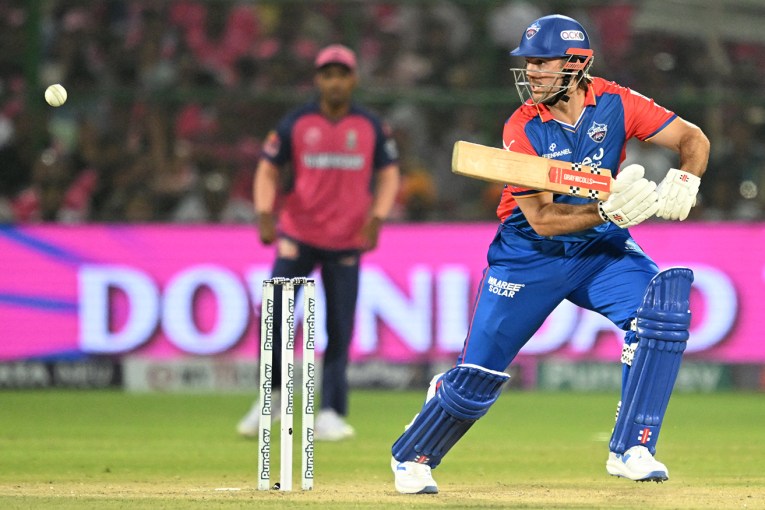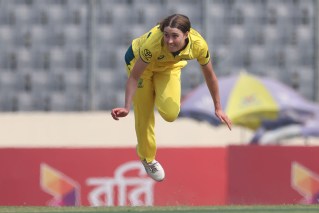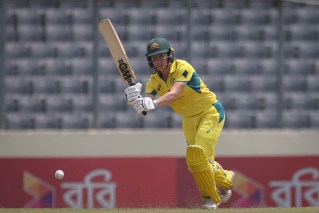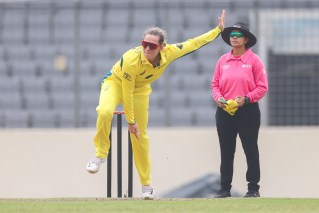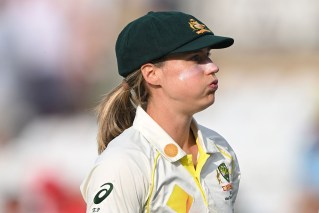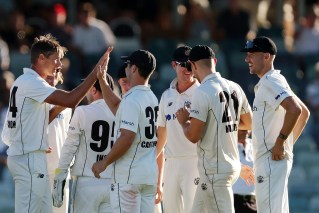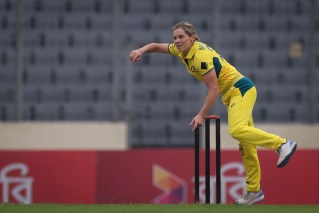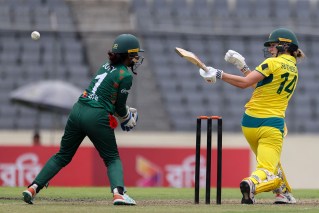Cabin fever the only thing that can derail Australia

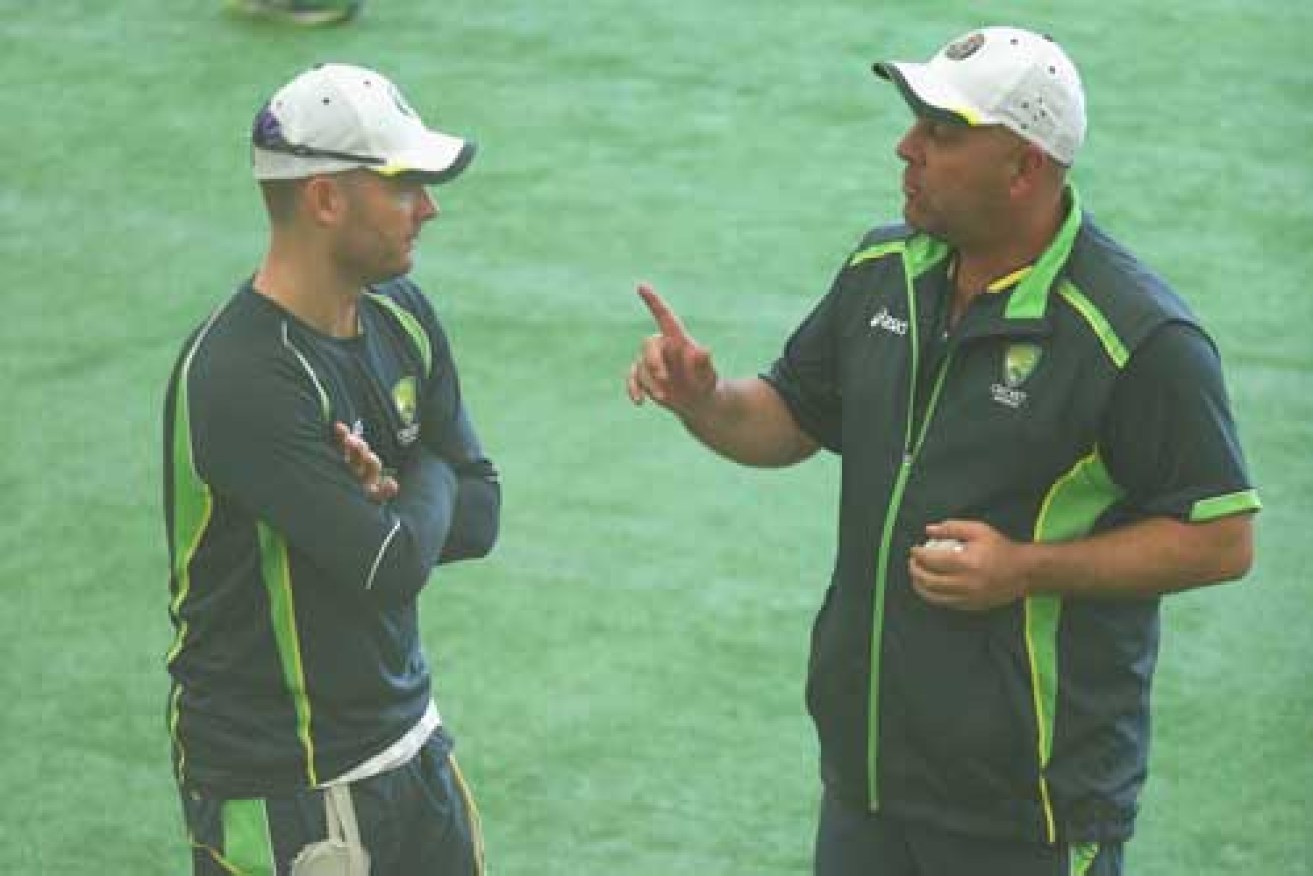
It’s been 25 years, but diehard Essendon fans of a certain vintage still seethe when reminded of the 1990 AFL finals series. They don’t need much encouragement to finger the reason for their team’s capitulation that year: the three-week break.
The anomaly occurred on account of the Collingwood vs West Coast draw in week one – a result which, under the rules at the time, necessitated a return bout the following Saturday.
The Bombers, who earned a week off for finishing atop the ladder, had to cool their heels and wait another week to commence their post-season campaign. All of a sudden, it was a long time between gallops.
• No ifs, no buts: Shane Watson has got to go
• The top 10 greatest World Cup moments
The rest is history, with Collingwood turning the tables on an Essendon team sapped of momentum. The Pies flogged the minor premiers twice in a fortnight, and famously won their first flag in 32 years.
The Australian cricket team face a similar challenge this weekend, fronting up for their most important group game of this World Cup after the inevitable letdown of last week’s Bangladesh fixture being lost to Cyclone Marcia’s downpour.
In practice, this means the Australian squad have been in camp for a fortnight between games. Granted, some were afforded the chance to get a couple of days at home, but two weeks watching the rest of the world play on TV while being reduced to net practice must be a desperately frustrating experience.

Boof doesn’t like rain. Photo: Getty
Without a cricket game to talk about, the risk of other distractions is elevated. Look no further than Shane Warne’s ill-considered contribution in criticising Darren Lehmann’s influence on the side, commentary that has been readily interpreted as a proxy for his best mate Michael Clarke.
Even if that’s not strictly how it happened, it created a messy incident; the product of introspection that can only come with too much time pondering and not enough time plundering.
On matters Clarke, the Bangladesh hit-out was the perfect theatre for his return to the Australian side after the better part of two-and-a-half months out of the international arena. Crucially, it was a game where he could control the tempo and prevail without necessarily having to push into top gear.
The same applies for the team as whole, with World Cups having a certain flow to them. As a tournament, they undulate. Players revert from high-octane fixtures, such as Australia’s opener against the old enemy, or this weekend’s blockbuster against New Zealand, to lower key affairs that can be used to build confidence and fine tune.
The Australian squad may sorely regret the missed opportunity for the latter last weekend. The abandoned Bangladesh match also meant Pat Cummins was denied his chance to be rotated through the starting XI, while James Faulkner’s case for selection against the Kiwis would come with the risk of having two players returning from injury on the same day – never a popular formula.
Australia has been in rude limited-overs form all summer. They have carried world-beating vigour into the tournament that has helped gloss over some relative inexperience in earning the favourites tag. There was little more that they could have done against England to further stake that claim.
However, that confidence risks taking a real dent if the Black Caps can continue their own menacing run, and can successfully knock off the Australians, in what effectively amounts to the latter’s only away game in this tournament.

“Have a word to your mate Warney, will you?” Photo: Getty
New Zealand comes into this game hugely incentivised and from a position of unprecedented strength – they’ve never been better placed. They already have three wins on the board, backing up after a mauling of England that left no cricket watcher in doubt that they have all the requisite parts moving in the right direction.
In an unbalanced and bloated tournament format that takes 42 pool matches to eliminate six teams before seven elimination games to sort out the final eight, fixtures with true relevance on the end product can feel a fraction few and far between. But this Saturday has that vital context.
Finishing top of the tree in Group A means that you cop the best of a far more ordinary bunch over the road in the more madcap Group B. When you consider winning the World Cup, the equation comes down to saluting in just three games in a row, so nursing a squad through that opening elimination game could prove valuable.
In New Zealand’s case, winning the group secures a run to the final where they never need to cross the Tasman until it is time to play on the last day of March at the MCG for the trophy.
For Australia, overcoming their cabin fever and keeping the wind in their sails could be the biggest test until the very pointy end of this tournament.
It all makes for a high-quality contest, the type a World Cup warrants.
Adam Collins was a senior adviser to the former federal government, and worked for the London 2012 Olympic and Paralympic Games organising committee.
